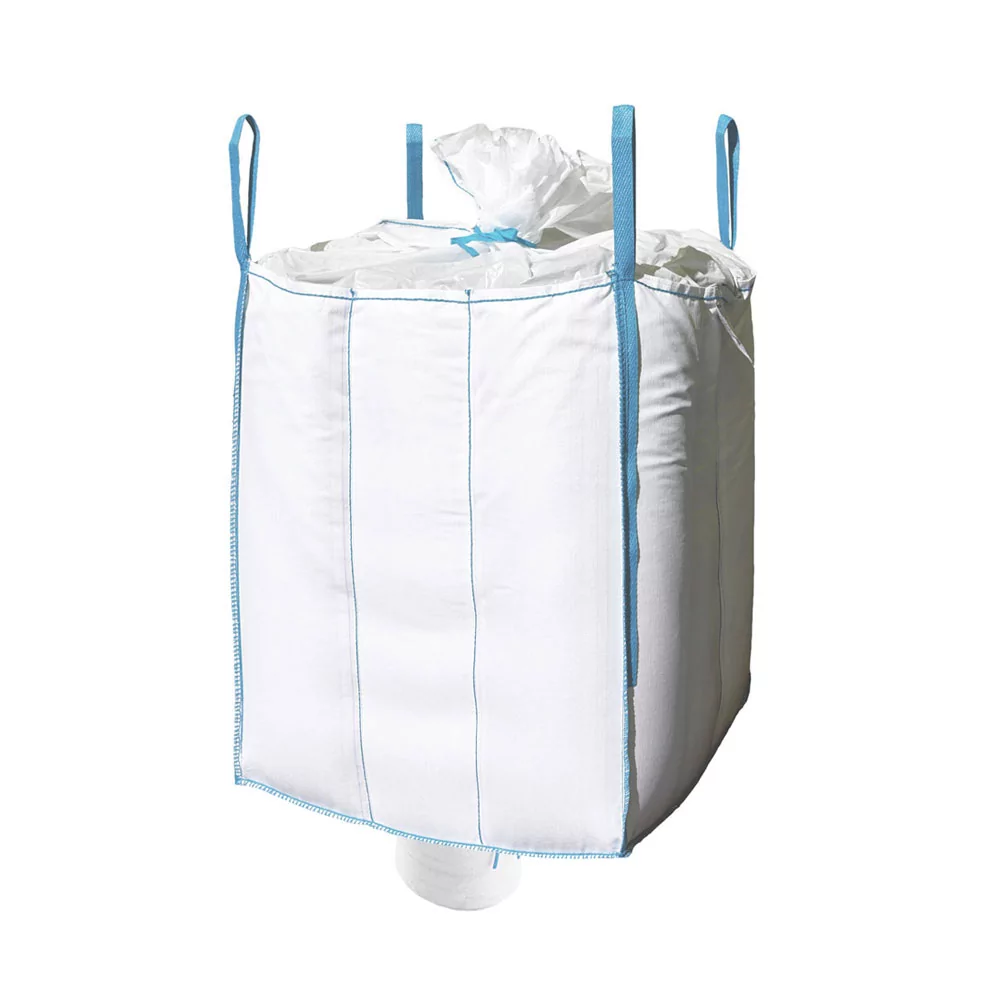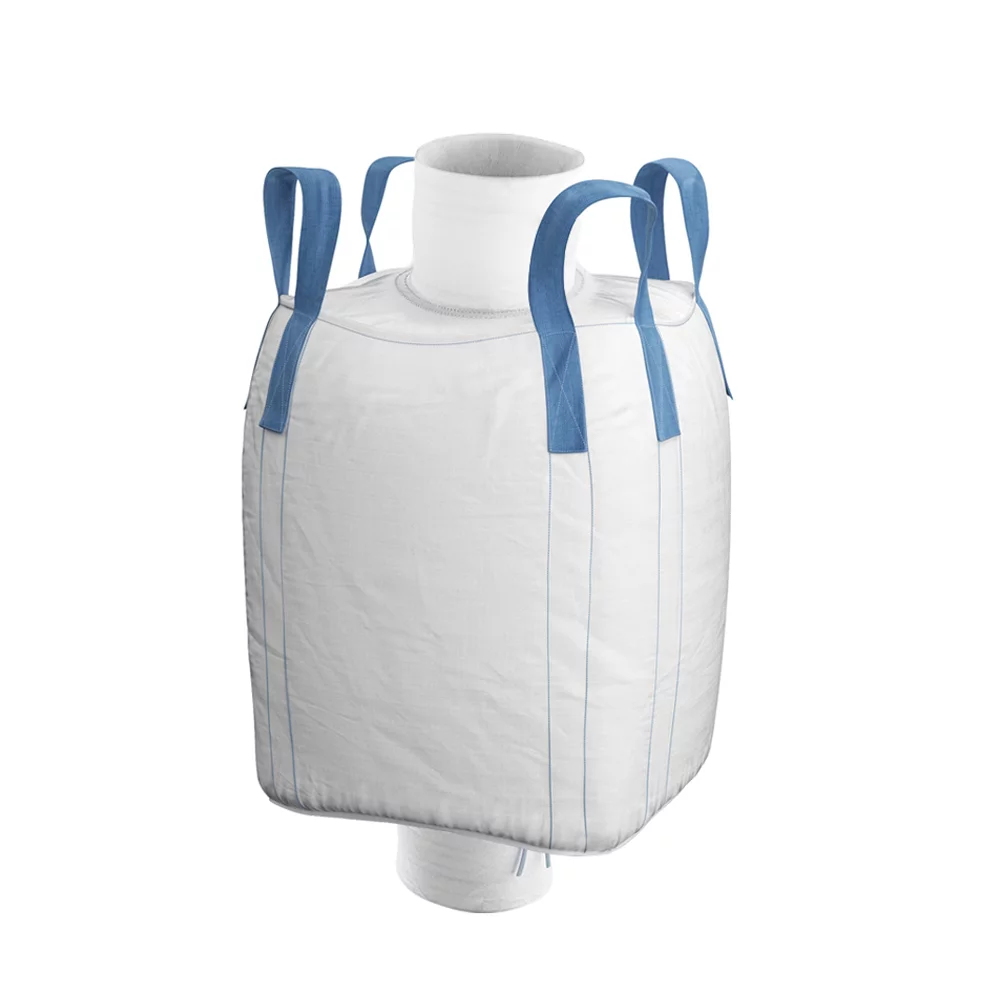Eco-Friendly Solutions: Making Use Of Bulk Bags to Reduce Packaging Waste
In a world where sustainability and ecological awareness are coming to be progressively essential, the need for eco-friendly solutions has actually never ever been more important. One such solution that has actually been getting grip is making use of bulk bags to lower product packaging waste. The advantages of this different packaging approach exceed just ecological considerations, offering a variety of benefits that make it an engaging selection for organizations and customers alike. From reducing plastic use to simplifying logistics, the shift towards mass bags presents an encouraging direction for an extra sustainable future.

Advantages of Using Bulk Bags
Bulk bags use a cost-effective and eco friendly solution for packaging waste decrease. One crucial advantage of utilizing mass bags is their capability to minimize the amount of additional packaging needed.
In addition, mass bags are very flexible and can be personalized to match numerous items and markets. Whether transporting agricultural products, chemicals, minerals, or food components, bulk bags can be tailored to meet certain size, weight, and handling demands. This adaptability not only enhances performance in packaging and transport however also lessens the general environmental influence by reducing the need for excess product packaging materials.
Furthermore, bulk bags are recyclable and recyclable, more boosting their sustainability profile. After use, these bags can be cleansed, repaired if necessary, and repurposed for future shipments, extending their lifecycle and decreasing total waste generation. bulk bags. By buying bulk bags, companies can not just enhance their functional performance but likewise add to a greener, more sustainable supply chain
Lasting Product Packaging Practices
Relocating from the benefits of making use of mass bags, sustainable packaging practices play a crucial function in decreasing ecological impact and advertising resource preservation within different sectors. Lasting product packaging intends to lower the overall ecological footprint of packaging materials by considering their lifecycle impacts. This consists of using environment-friendly materials like naturally degradable or recyclable product packaging, enhancing packaging design to reduce material use, and promoting multiple-use product packaging services. By embracing sustainable packaging methods, organizations can lower their carbon discharges, decrease garbage dump waste, and add to a more circular economic climate.
Moreover, sustainable product packaging techniques additionally include executing reliable packaging procedures to lessen power usage and transport exhausts. This can include maximizing packaging sizes to make best use of space use throughout delivery, using lightweight products to lower fuel usage, and carrying out cutting-edge packaging techniques like nesting or stacking to lessen lost area. In general, lasting product packaging techniques not just benefit the environment but also present chances for cost savings and boosted brand name track record in today's eco aware market.
Influence On Lowering Waste
Sustainable packaging techniques have a considerable effect on lowering waste by decreasing the ecological impact of packaging products and promoting source conservation. One of the vital means in which sustainable packaging accomplishes this is through making use of mass bags. Bulk bags are designed to carry large quantities of products, decreasing the need for multiple smaller packages. By using bulk bags, organizations can substantially reduce the quantity of packaging material needed for their items, leading to a reduction in waste generation.
Moreover, mass bags are often reusable and sturdy, additional adding to throw away reduction initiatives. These bags can be utilized several times prior to requiring substitute, unlike single-use packaging options that wind up in garbage dumps after simply one usage. Furthermore, bulk bags can be reused at the end of their lifecycle, using a more sustainable disposal alternative compared to standard packaging materials.
Convenience and Convenience Attributes
With the emphasis on minimizing waste through lasting product packaging techniques, it is necessary to check out the versatility and convenience attributes that bulk bags deal in improving total performance and eco-friendliness. Mass bags, also referred to as versatile intermediate mass article containers (FIBCs), are created to handle a wide variety of products, from dry items like powders and grains to building and construction products like sand and crushed rock. Their adaptable nature enables easy transportation and storage of diverse things, minimizing the need for several types of product packaging. In addition, bulk bags can be found in different dimensions and configurations to suit different needs, using services flexibility in their product packaging options.
Convenience functions such as spouts, gain access to flaps, and raising loopholes make taking care of and dispensing materials from mass bags easy and effective. These attributes not just streamline the product packaging process yet likewise add to a reduction in packaging waste by eliminating the need for added packaging materials like cardboard boxes or plastic containers. By incorporating these adaptability and convenience elements into their operations, services can even more enhance their sustainability initiatives while boosting overall performance.
Economical and Environment-friendly Solution

Moreover, bulk bags are recyclable and reusable, straightening with sustainability goals and minimizing the ecological effect of packaging waste. The resilient building and construction of mass bags allows them to endure numerous usages, making them a long-term financial investment for companies looking to lessen their carbon impact.
Along with set you back savings and environmental advantages, making use of bulk bags enhances functional performance. Their large ability reduces the number of packaging systems required, simplifying logistics processes and simplifying handling and storage. On the whole, integrating bulk bags into product packaging strategies not just supplies financial advantages yet also demonstrates a commitment to sustainable practices and resource effectiveness.
Final Thought
Finally, making use of bulk bags provides numerous benefits such as lowering product packaging waste, promoting sustainable packaging methods, and offering convenience and benefit features. These economical and environment-friendly remedies have a significant influence on lessening waste and promoting environmental preservation efforts. By incorporating bulk bags right into product packaging organizations, practices and consumers can add to a much more sustainable and eco conscious future.
Sustainable packaging intends to decrease the overall ecological impact of packaging products by considering their lifecycle effects.Additionally, lasting product packaging methods additionally include executing efficient packaging processes to lessen energy intake and transport emissions.Sustainable packaging techniques have a considerable impact on decreasing waste by decreasing the environmental impact of product packaging materials and promoting source preservation - bulk bags. These attributes not just enhance the packaging procedure but also add to a decrease in packaging waste by removing the need for additional product packaging products like cardboard boxes or plastic containers.In conclusion, the click here now usage of bulk bags supplies different benefits such as reducing packaging waste, promoting sustainable product packaging techniques, and supplying convenience and ease attributes